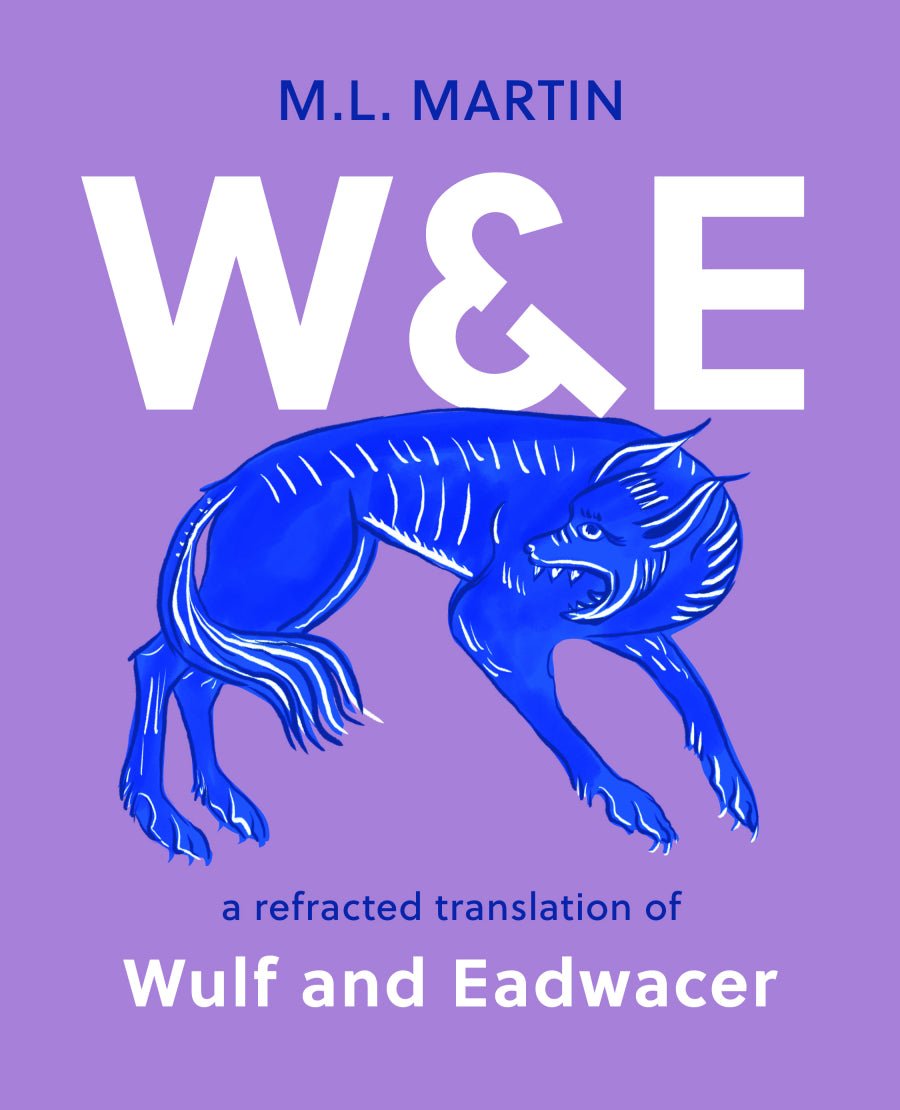M.L. Martin
W&E: A Refracted Translation of Wulf and Eadwacer
W&E: A Refracted Translation of Wulf and Eadwacer
Couldn't load pickup availability
M.L. Martin’s groundbreaking book, W & E begins with the mysterious Anglo-Saxon poem commonly known as “Wulf and Eadwacer.” The poem, found only in the Exeter Codex, appears to tell the story of love and imprisonment: the speaker is kept from her lover, Wulf, by Eadwacer, who could be her husband or captor. B ut the narrative is elliptical and strange, the grammar ambiguous, the formal features unorthodox. The poem may not even be a story – some scholars have suggested that it might be a riddle, a beast fable or charm. Rather than establishing a singular truth behind this enigmatic poem, Martin’s translations and iterations dwell in the potentialities of the text. Entranced by its mysteries, Martin returns again and again to hear new stories, new poems, and through these discoveries contemplates the dynamics of violence and romance, and “our queer love song.”
Praise for W & E:
W & E is both a brilliantly provocative experiment in the possibilities of imitation, translation and recreation, and a memorable, highly original work of poetry in its own right. --Emily Wilson
One poem on one island is devoured by a translator on another island. It is charm or riddle or ballad. Or, “slaughter-sick.” Elegy or injury. Anonymous Pre-10th-century Proto-Feminist poet, we welcome you. In W & E, M.L. Martin’s gloriously multiplicitous book-length translation of your poem, they speak your broken silences and hungry vowels, breaks and remakes them. The poem emerges not intact, but as defiant offerings. Case in sharp points. Some poems, like “Wulf and Eadwacer,” can only be rendered legible via an explosive-expansive translation as this, and as such should be read as embrace, as wolf, as joy, as battle. --Sawako Nakayasu


